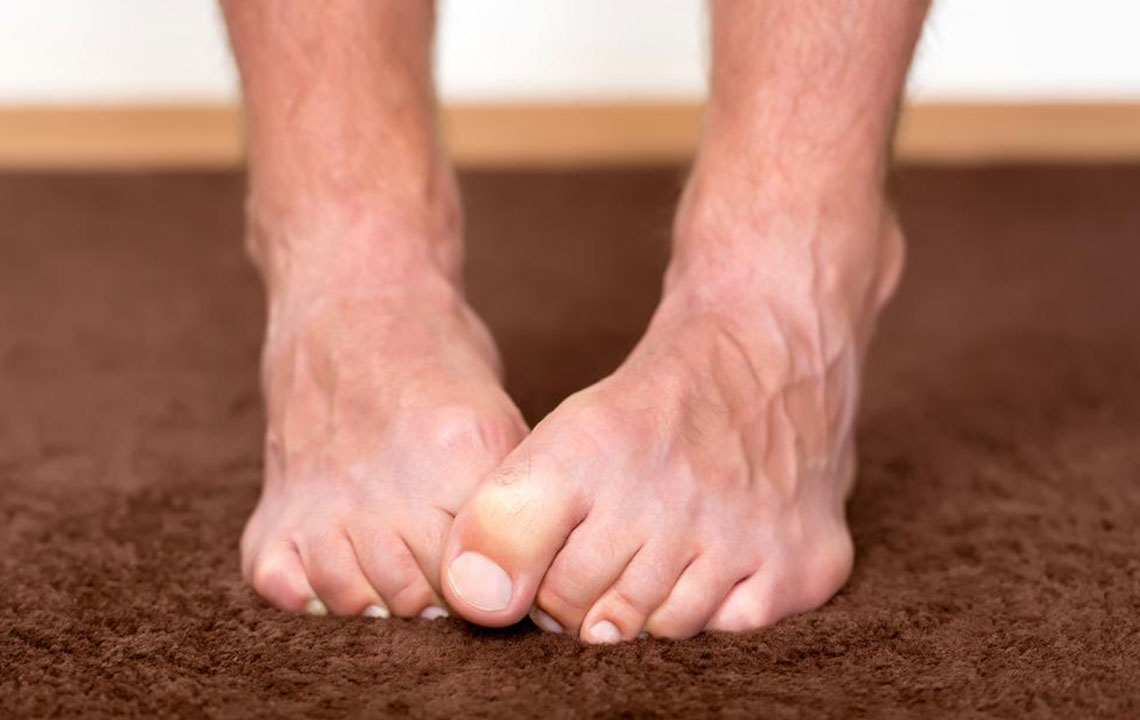Natural and Holistic Approaches to Easing Neuropathy Pain Naturally
Discover comprehensive natural methods to relieve neuropathy pain effectively. From dietary habits and herbal remedies to stress management and alternative therapies, this guide offers practical strategies to improve nerve health. Implementing these holistic approaches can enhance your quality of life, reduce nerve inflammation, and support nerve regeneration. Consult healthcare professionals before starting any new treatment plans to ensure safety and suitability for your condition. Embrace these proven natural strategies for a healthier, pain-free life with neuropathy.

Natural and Holistic Approaches to Easing Neuropathy Pain Naturally
Neuropathy, characterized by nerve damage that causes pain, tingling, and numbness, can significantly impair quality of life. While conventional treatments often focus on medication, many individuals seek natural, holistic ways to manage and alleviate their symptoms. Understanding the root causes of neuropathy and addressing them through lifestyle modifications, dietary choices, and alternative therapies can be highly effective in reducing discomfort and improving nerve health.
One of the foundational strategies for alleviating neuropathic pain is identifying and treating the underlying cause. In cases where neuropathy is caused by diabetes, controlling blood sugar levels is paramount. Maintaining stable glucose levels can slow progression and even reverse some nerve damage. A diet rich in green vegetables such as spinach, broccoli, and parsley plays a crucial role in this. These vegetables contain antioxidants and anti-inflammatory compounds that support nerve repair and reduce inflammation.
Regular physical activity is another essential component. Engaging in moderate exercises like walking, swimming, or yoga helps improve blood circulation, which is vital for nerve health. Exercise also promotes the release of endorphins and serotonin—natural mood enhancers—that can decrease the perception of pain. Incorporating a consistent routine of physical activity tailored to individual capabilities can make a significant difference in managing neuropathy symptoms.
Hormonal imbalances, particularly thyroid issues, may contribute to nerve pain and degeneration. Routine hormone screening and managing any identified imbalances through natural or medical therapies can help reduce neuropthy symptoms. Additionally, managing stress through practices such as yoga and meditation has been shown to alleviate nerve pain symptoms exacerbated by stress-induced inflammation.
Emerging research indicates a strong link between mental health and nerve pain. Depression and anxiety often coexist with neuropathy, possibly intensifying the perception of pain. Therefore, addressing mental health is a critical aspect of natural treatment. Techniques like mindfulness meditation, deep breathing exercises, and engaging in hobbies can promote relaxation and reduce stress, leading to decreased nerve inflammation.
Numerous natural methods have been identified to support nerve health and alleviate pain. These include proper hydration, dietary adjustments, herbal remedies, and lifestyle changes. Staying well-hydrated is vital; water aids in reducing nerve inflammation and promotes overall cellular health. Dehydration can exacerbate nerve pain, so drinking adequate fluids daily is essential. Avoid excessive alcohol, as it can damage nerves and interfere with their healing processes.
Similarly, limiting alcohol intake and steering clear of recreational drugs can prevent further nerve damage. These substances can inflame or destroy nerve tissues, hindering recovery. Quitting smoking is equally important. Smoking impairs blood flow, reduces oxygen supply to nerves, and introduces toxins that accelerate nerve damage. Avoiding exposure to environmental toxins like pesticides, heavy metals, and harmful chemicals in cosmetics and household products further supports nerve health.
Incorporating anti-inflammatory natural ingredients such as ginger and turmeric into your diet can provide considerable relief from nerve pain. Ginger's bioactive compounds inhibit inflammation, relaxing nerves and reducing discomfort. Turmeric, containing curcumin, has potent anti-inflammatory properties that may help prevent nerve inflammation and encourage healing.
Dietary modifications emphasizing green vegetables plus avoiding processed, fried, and fast foods help reduce overall inflammation, supporting nerve function and resilience. Leafy greens like spinach, kale, and collard greens are rich in vitamins B and E, which are essential for nerve repair. Cruciferous vegetables like broccoli also contain compounds that suppress inflammation.
Herbal remedies such as vervain and valerian root have long been used for calming nerves and promoting relaxation. These herbs can be consumed as teas or supplements to help soothe neuropathy symptoms. Omega-3 fatty acids, found in fatty fish such as tuna, salmon, and mackerel, as well as in plant sources like flaxseeds and chia seeds, are associated with anti-inflammatory effects promoting nerve regeneration.
Stress management is a core aspect of natural neuropathy relief. Chronic stress increases systemic inflammation, which can worsen nerve pain. Regular practice of meditation—preferably 15 to 20 minutes daily—helps calm the nervous system and reduce nerve inflammation. Additionally, engaging in gentle activities such as tai chi or qigong can foster relaxation and improve nerve health.
Acupuncture is another natural therapy gaining recognition for its effectiveness in relieving neuropathy symptoms. This traditional Chinese medicine technique involves inserting fine needles into specific points on the body to stimulate nerves, improve blood flow, and reduce pain perception. Many patients report significant improvements after several sessions.
For those with nutrient deficiencies, supplementation can support nerve regeneration. Vitamins B1, B6, B12, and D are especially beneficial. Vitamin B deficiencies are linked to nerve damage, and supplementing appropriately can help restore nerve function. Always consult with a healthcare provider before starting any supplement regimen to determine appropriate dosages and ensure safety.
Daily lifestyle habits such as walking are simple yet powerful in managing neuropathy. Walking for at least 30 minutes each morning releases endorphins and serotonin, natural painkillers that alleviate nerve pain and promote emotional well-being. Incorporating movement into your routine also improves circulation, essential for nerve repair.
In conclusion, managing neuropathy naturally involves a comprehensive approach that combines dietary modifications, stress management, herbal remedies, lifestyle changes, and possibly alternative therapies like acupuncture. It’s important to seek guidance from healthcare professionals to tailor a plan specific to individual needs and conditions. By embracing these holistic strategies, many individuals experience significant relief from nerve pain and a marked improvement in their quality of life.
Always remember, natural strategies should complement conventional medical treatments, not replace them. Regular check-ups and medical advice remain essential for effective management of neuropathy and its underlying causes.





